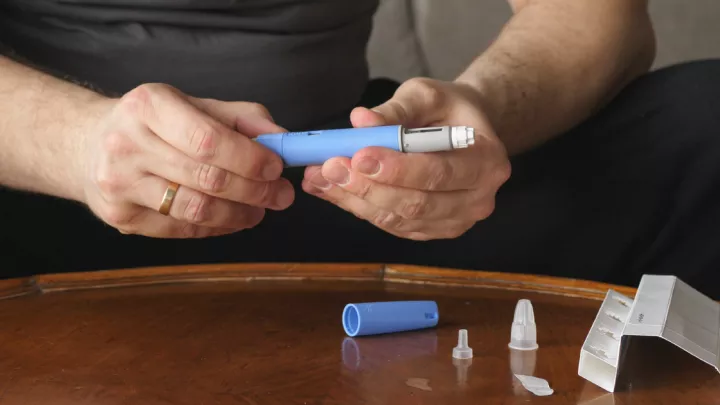First over-the-counter birth control pill available in stores

Many women face barriers to using prescription birth control. They may be unable to take time off work or school to visit a medical provider. They may have difficulty traveling to health care clinics. They may not have insurance or are unable to pay for prescription birth control.
Also, some women can’t use estrogen-based contraceptives for health reasons, such as:
- Hypertension
- Migraines with aura
- History of blood clots
- Smoking
- Breastfeeding
Opill® represents a groundbreaking advancement in contraceptive options, offering women a safe, convenient and over-the-counter birth control choice. Its progestin-only formulation addresses the needs of women who can’t use estrogen-based contraceptives due to medical reasons, thereby expanding access to effective contraception.
What is Opill®?
“Opill® is a progestin-only, daily oral contraceptive that’s safe and effective when used as directed to help prevent pregnancy,” explains OB-GYN Jennifer Griffin, MD. “It’s the only over-the-counter birth control pill available in the United States.”
The Opill® isn’t an emergency contraceptive (morning after pill) and doesn’t protect against HIV/AIDS or other sexually transmitted diseases.
Side effects may include:
- Changes in menstrual bleeding
- Breast tenderness
- Nausea
- Mood changes
- Headaches
Available for around $20 per month, the Opill® is more affordable and accessible than most prescription birth control. You don’t need parental consent to buy it. And, because it is a pill you take every day, you don’t need to monitor your menstrual cycle.
Is Opill® effective?
Opill® works by increasing the thickness of a woman’s cervical mucus to make it harder for sperm to get through. It is extremely effective in preventing pregnancy. In eight U.S. clinical trials, approximately 98% of sexually active women who used Opill® for a year didn’t become pregnant in that time. As with any birth control method, Opill® doesn’t prevent pregnancy 100% of the time. It works best if taken exactly as directed.
“It's important to take Opill® at the same time every single day, even when you have your period,” says Dr. Griffin. “When you finish one pack (all 28 tablets), you should start the next pack the following day.”
If you miss a dose but are less than three hours late, take one tablet immediately. Then return to taking your tablet at your usual time the following day.
If you’re more than three hours late or missed one or more tablets:
- Take one tablet immediately, as soon as you remember. Then, go back to taking your tablet at your usual time. This means you may take two tablets in one day.
- Use a condom (or another barrier method) every time you have sex during the two days (48 hours) after you restart Opill®, because it takes two days to start working again.
- Take a pregnancy test or talk to a doctor if your period is late after missing any tablets in the previous month.
Is Opill® right for me?
Most women can use Opill®. It should not be used by people who:
- Have a history of breast cancer.
- Have allergies to this product or any of its ingredients, such as the color additive FD&C yellow No.5 (tartrazine).
- Are currently using another birth control pill, vaginal ring, patch, implant, injection or IUD.
- Have a known or suspected pregnancy.
- Are male.
You should talk to a doctor before using Opill® if you currently have vaginal bleeding between your periods, if you have liver problems or have ever had cancer.
Also, talk to a doctor or pharmacist if:
- You’re taking a prescription drug for seizures, tuberculosis, HIV/AIDS or pulmonary hypertension.
- You’re taking a supplement containing St. John’s Wort (an herbal ingredient).
- If you’ve taken ulipristal acetate (an emergency contraceptive, or morning after pill) in the past five days.
Need birth control advice?
Call 800.922.0000 to schedule an appointment with one of our OB-GYNs.








